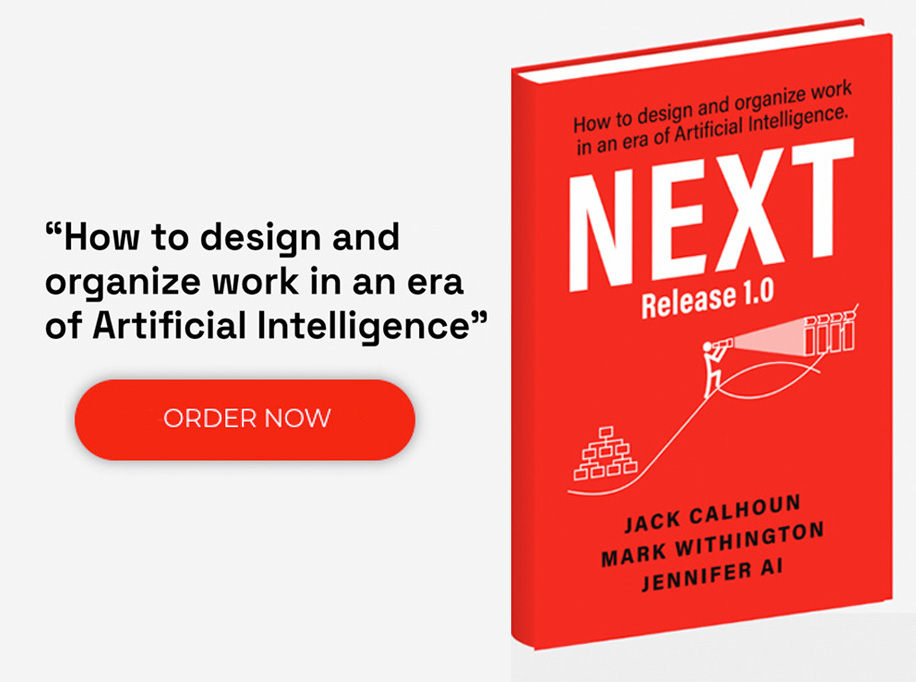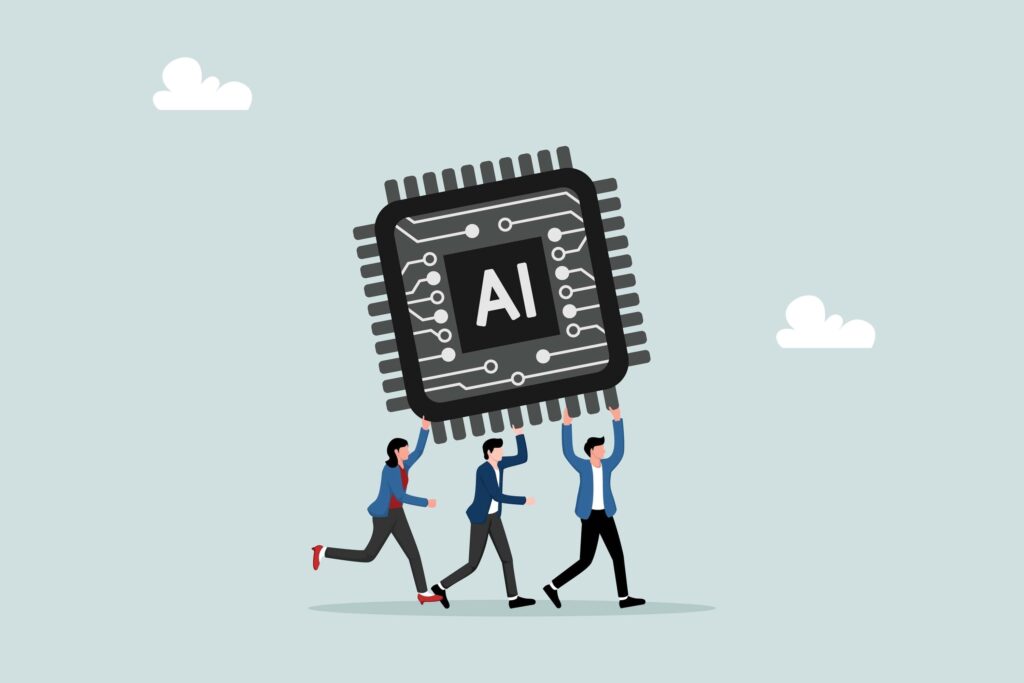The rise of AI drastically shifts businesses from the “automation” technologies of the past to the “transformation” technologies of our collective present. While traditional IT solutions focus on streamlining existing processes, AI inspires businesses to completely reimagine their operating models and create new growth opportunities. However, the path to successful AI adoption is fraught with challenges. From lack of strategic alignment and data quality issues to talent shortages and operational silos, businesses must navigate immense complexities to realize the full potential of AI. In this guide, we discuss the transformative power of AI and the risks of not embracing this technology.
Why AI is Transforming Business Today
You’ve likely heard a lot about AI lately. It seems everyone is talking about how it will change the world, but maybe you’re not quite sure what that means for your company. Well, here’s the thing: if you want your business to stay relevant and competitive, you can’t afford to ignore it.
Just look at companies like Bayer, who built an agent using Copilot that lets their Crop Science researchers and scientists search the tool using natural language. What previously could take days to find the information now saves R&D teams 3 to 6 hours per researcher per week.
What makes AI so transformative is the way it handles data. Businesses have access to more information than ever before. But having all that data is one thing – knowing what to do with it is another.
AI tools can analyze vast amounts of data in a fraction of the time it would take a human. They can spot patterns, make predictions, and uncover insights that would be nearly impossible for us to see. And when you have that kind of deep understanding of your customers, your market, and your own operations, you can make smarter, faster decisions that drive real results.
C. H. Robinson, a global logistics company, used Azure AI Studio and Azure OpenAI Service to build generative AI tools that automate emailed customer requests, reducing speed to market from hours to seconds. This move set them on pace to achieve another 15% increase in productivity and improved their customer service.
Notably, AI also creates entirely new ways of doing business. You can automate routine tasks, freeing up your employees to focus on higher-value work. You can create hyper-personalized experiences for your customers, anticipating their needs and delivering the right message at the perfect time. You can even develop new products and services that were once unimaginable.
What Is the Impact of Not Adopting AI for Your Business?
In this era of digital disruption, failing to adopt AI can have severe consequences for businesses. Here are some of the most significant impacts of not embracing AI:
Falling Behind Competitors
Companies that effectively leverage AI gain a substantial competitive advantage. They can analyze data faster, make better decisions, and innovate more quickly. If your business fails to adopt AI, you risk falling behind your competitors who are using AI to drive efficiency, reduce costs, and create new products and services.
Missed Opportunities
AI helps businesses identify new opportunities, such as untapped market segments, emerging trends, or potential innovations. Without AI, your business may miss out on these opportunities, which limits your growth potential and market share.
Higher Costs
AI can automate processes, optimize resource allocation, and reduce waste, leading to significant cost savings. However, if your business doesn’t adopt AI, it may be stuck with inefficient, manual processes that keep costs high and hurt its bottom line.
Poor Customer Experience
Customers expect personalized, responsive, and efficient interactions. AI powers many technologies that create these experiences, like chatbots to recommendation engines. If your business lags in AI adoption, you may struggle to meet customer expectations, leading to lower satisfaction and loyalty.
Lack of Insights
AI excels at analyzing vast amounts of data to uncover insights and patterns that humans might miss. Without AI, your business may be making decisions based on incomplete or outdated information, putting you at a disadvantage compared to data-driven competitors.
Operational Inefficiencies
AI can streamline and optimize many operational processes, from supply chain management to predictive maintenance. If your business isn’t using AI to improve operations, you may deal with longer lead times, more downtime, and lower productivity than your AI-powered peers.
Talent Acquisition and Retention Challenges
As AI becomes more prevalent, employees with AI skills are in high demand. If your business isn’t investing in AI, you may struggle to attract and retain top talent, as they seek opportunities to work with cutting-edge technologies.
Create an AI Strategy for Your Business with Accelare
The choice is not whether to adopt AI, but how to do so strategically and responsibly.
Accelare’s AI Roadmap helps businesses navigate the complexities of AI adoption and develop a strategic approach that aligns with their unique goals and challenges. Here’s what our AI Roadmap process entails:
- Identifying AI opportunities within your business processes
- Creating a service catalog and heat map to prioritize AI initiatives
- Developing an AI project roadmap and business cases
- Aligning AI investments with your strategic goals and budget
Take the first step today by completing our free Digital Disruption Assessment. In just a few minutes, you’ll better understand your AI readiness and potential for transformation.
—
References:
- https://www.accelare.com/digital-transformation/ai-roadmap
- https://www.microsoft.com/en-us/worklab/agents-of-change
- https://www.microsoft.com/en/customers/story/19575-ch-robinson-azure-ai-studio
- https://www.accelare.com/digital-transformation/customer-experience
- https://www.accelare.com/digital-transformation/professional-development
- https://sqyopd0f91i.typeform.com/to/N8U6pcGy?typeform-source=www.accelare.com#mark=xxxxx











